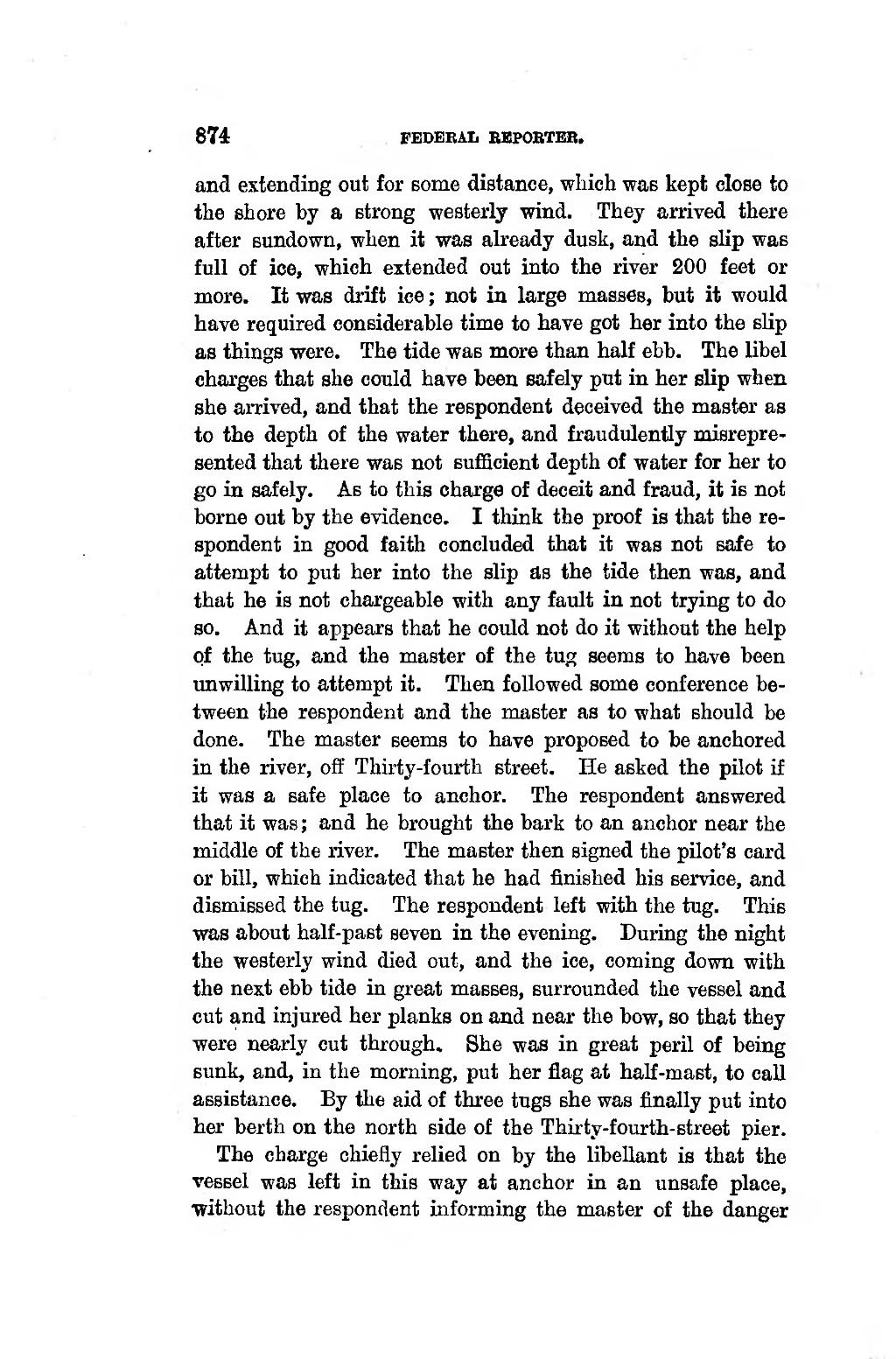874 FEDERAL EKPOBTBB. �and extending out for some distance, which was kept close to the shore by a strong westerly wind. They arrived there after sundown, wlien it was already dusk, and the slip was full of ice, which extended out into the river 200 feet or more. It was drift ice ; not in large masses, but it vould have required considerable time to have got her into the slip as things were. The tide was more than half ebb. The libel charges that she could have been safely put in her slip when she arrived, and that the respondent deceived the master as to the depth of the water there, and fraudulently misrepre- sented that there was not sufficient depth of water for her to go in safely. As to this charge of deceit and fraud, it is not borne out by the evidence. I think the proof is that the re- spondent in good faith concluded that it was not safe to attempt to put her into the slip as the tide then was, and that he is not chargeable with any fault in not trying to do 80. And it appears that he could not do it without the help pf the tug, and the master of the tug seems to have been unwilling to attempt it. Then foUowed some conference be- tween the respondent and the master as to what should be done. The master seems to have proposed to be anchored in the river, off Thirty-fourth street. He asked the pilot if it was a safe place to anchor. The respondent answered that it was ; and he brought the bark to an anchor near the middle of the river. The master then signed the pilot's card or bill, which indicated that he had finished his service, and dismissed the tug. The respondent left with the tug. This was about half-past seven in the evening. During the night the westerly wind died out, and the ice, coming down with the next ebb tide in great masses, surrounded the vessel and eut and injured her planks on and near the bow, so that they were nearly eut through. She was in great peril of being sunk, and, in the morning, put her flag at half-mast, to call assistance. By the aid of three tugs she was finally put into her berth on the north side of the Thirty-fourth-street pier. The charge chiefly relied on by the libellant is that the vessel was left in this way at anchor in an unsafe place, without the respondent informing the master of the danger ����
Page:Federal Reporter, 1st Series, Volume 3.djvu/881
This page needs to be proofread.
